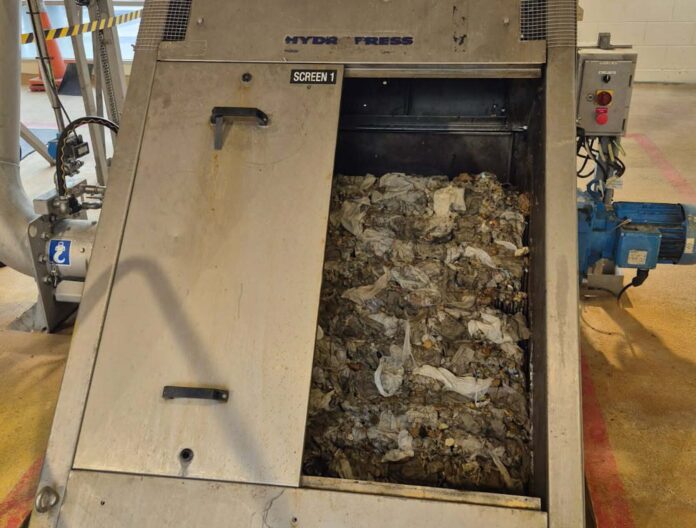Hamilton City Council is sending letters to local households this week in a bid to stem the flow of wet wipes into the city’s wastewater system.
Around the world, damage caused by flushing wet wipes into the wastewater network costs network operators millions of dollars every year.
Marketed as ‘flushable’ or ‘biodegradable’ the products indicate they can be flushed into the wastewater network. But once in the system, they cause havoc, the Council says.
“Anything wrongly flushed into our network can cause problems, but the single worst issue, by scale and impact, is wet wipes. They don’t break down like paper, they bind with fats, hair and waste, and create massive lumps which block the pipes, damage machinery and cause wastewater overflows,” said Council Head of Operations and Process, Fiona Sutton.
For almost a decade, Hamilton has been running an education campaign explaining that wet wipes need to be binned, not flushed.
“This isn’t just about looking after our plants and the cost of repairs, this is about public health and our environment,” Ms Sutton says.
Recent research shows even non-plastic wet wipes, claimed as ‘biodegradable’ by manufacturers, can last up to 15 weeks in the environment, where they can act as a reservoir for faecal bacteria and E. coli. Other studies have highlighted non-plastic textiles lasting for two months or more in rivers and oceans, where they break up into hundreds of thousands of microfibres.
Last month, the UK introduced draft legislation banning wet wipes containing plastic, with fines of the equivalent of NZ$460 for retailers selling the products.
Council has a multi-pronged approach to keeping the network operating smoothly including public education, preventative equipment, regular maintenance, upgrades, and emergency responses.
Screening systems and barriers to contamination capture around a tonne of non-biodegradable matter which is removed from the treatment plant each day and trucked to landfill. Alarm systems and monitoring check for overflows across Hamilton’s hundreds of kilometres of wastewater pipes and more than 140 pump stations.
Special macerating pumps have been installed which are able to ‘chop up’ some congealed masses within the network, allowing flows to continue and reducing the risk of blockages and overflows.
With the city split by the Waikato River, the Hamilton City Council team is passionate about protecting their awa. The majority of blockages in the system have wet wipes at the heart of them.
“If we want to keep our network operating well, and protect our environment and the health of our families, we need to make sure we’re not flushing the wrong things,” Ms Sutton says.
Some everyday items that should not enter the wastewater system include wet wipes, nappies, sanitary items, cotton buds, oils and grease, cleaning products/chemicals/paints, food scraps, paper, plastics and paint rinse water.
“It’s a pretty simple ask – if it’s not pee, poo or paper, don’t flush it,” Ms Sutton said.



